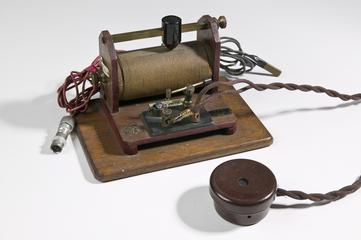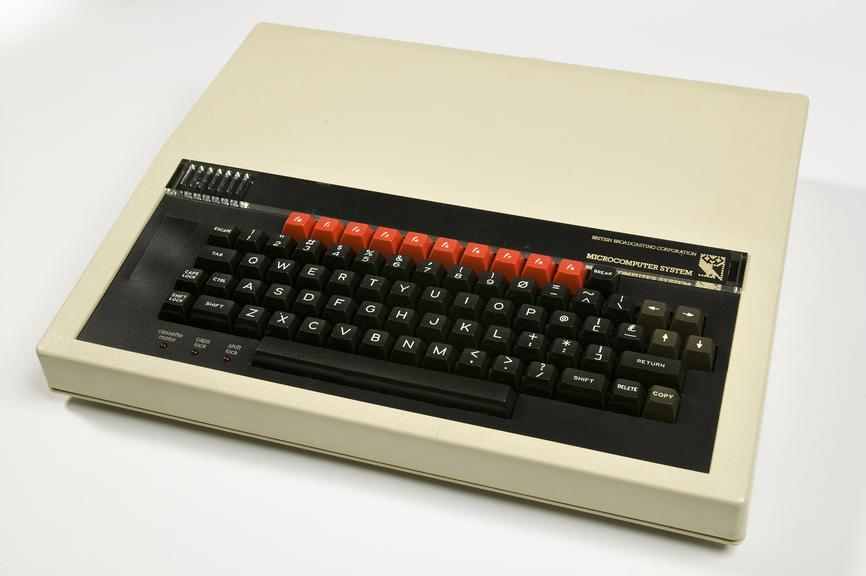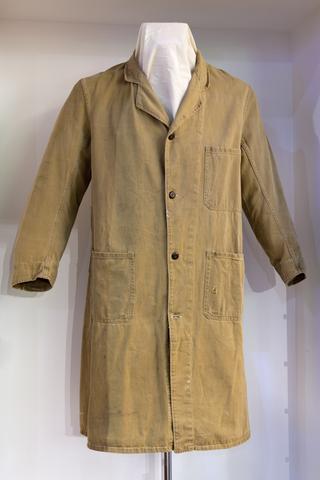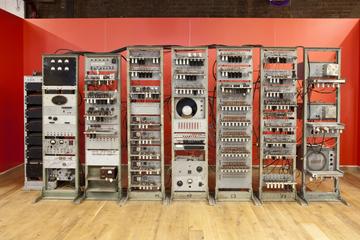
BBC B Micro Computer
- Made:
- circa 1983 in Cambridge




BBC B Micro computer, made by Acorn Computers Ltd, Cambridge, c.1983.
The BBC Microcomputer was an early British home computer, developed by Acorn Computers in collaboration with the BBC as the official computer of the BBC Computer Literacy Project, an ambitious scheme to introduce the British public to information technology and encourage them to learn about computers. Designed with education firmly in mind, it was a robust machine with a wide range of features and was virtually the standard computer for British schools during the 1980s. The BBC Microcomputer was produced in two main versions: the Model A, which had 16 kilobytes of random access memory (RAM) and the more expensive Model B, like this one, which had 32 kilobytes of RAM. Amongst its most important components were Uncommitted Logic Array (ULA) microchips, made by Ferranti in Greater Manchester.
Details
- Category:
- Computing & Data Processing
- Object Number:
- Y2009.46
- Materials:
- plastic (unidentified) and electrical components
- Measurements:
-
Overall: 76 mm x 345 mm x 412 mm,
- type:
- microcomputer




